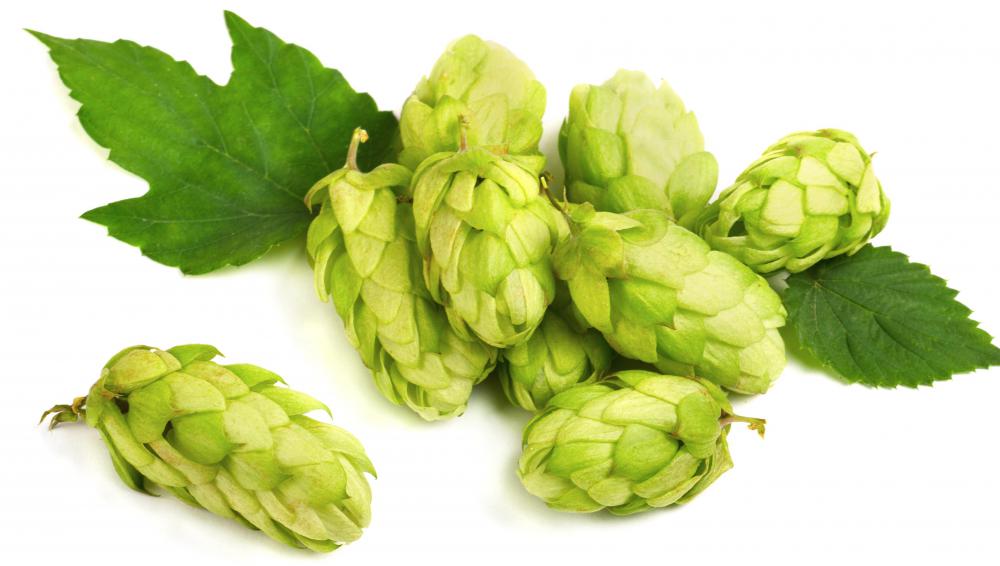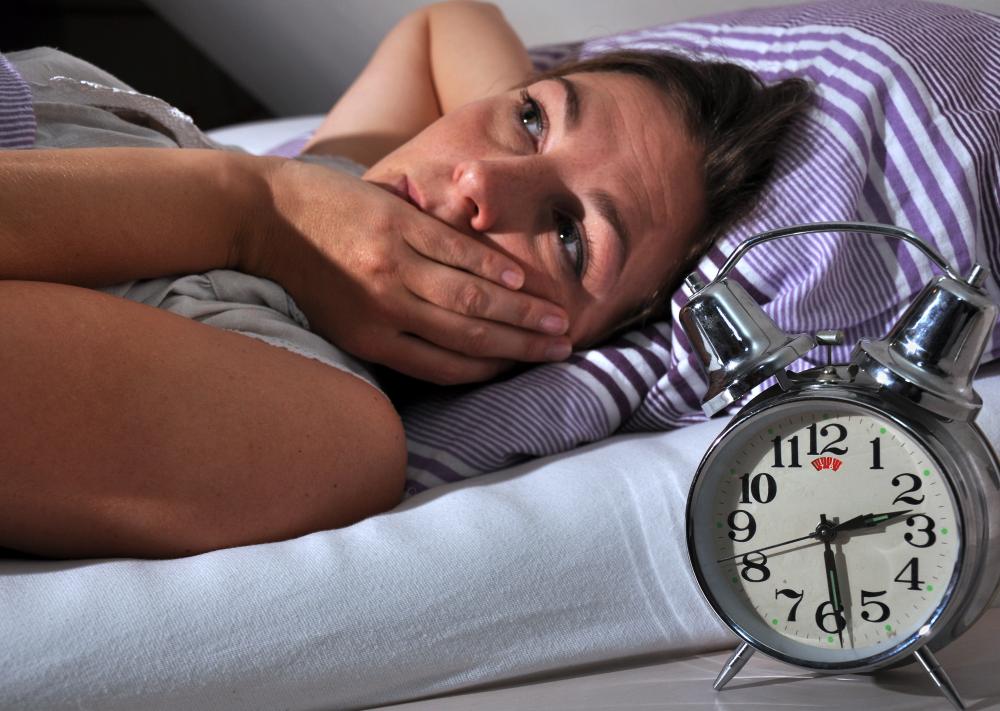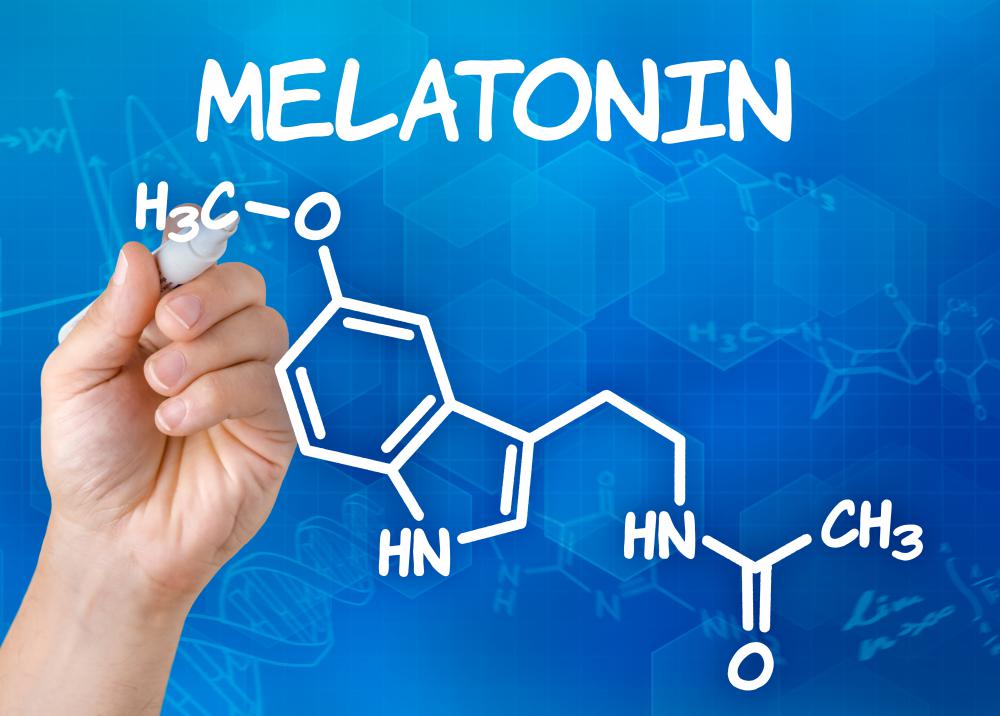At WiseGEEK, we're committed to delivering accurate, trustworthy information. Our expert-authored content is rigorously fact-checked and sourced from credible authorities. Discover how we uphold the highest standards in providing you with reliable knowledge.
What are the Different Types of Sleep Aids?
There are numerous recommendations for treating frequently occurring sleep difficulties. The best way to treat sleep disorders is to prevent them, by maintaining a regular sleep routine, addressing any stress that may cause sleeplessness, avoiding caffeinated beverages at least six hours before bedtime, having a comfortable mattress, and maintaining a good diet and exercise regime. If in spite of trying these things, one is still unable to sleep, there are a number of sleep aids to try. Sleep aids fit into several categories: alternative therapies or supplements, over the counter medications, and prescription medications. Each sleep aid has supporters and opponents, but knowing all the options can increase one's chances of returning to normal sleep patterns.
Alternative therapies include acupuncture and different forms of meditation. Acupuncture has been clinically studied to gauge its effectiveness as a sleep aid, and the results suggest an overall improvement in sleeping quality. There is also much anecdotal evidence to suggest acupuncture is effective. More clinical studies will need to be done to officially call this method "effective."

Meditation and relaxation can also be tried as sleep aids. These techniques are learned over at least several weeks, so they will not address an immediate sleep need. Yoga and Tai Chi are meditative exercise programs that can help the body relax and improve sleep over time. Prayer, as meditation, can be helpful. Specific relaxation techniques, like progressive muscle relaxation and biofeedback, have been anecdotally shown to aid in sleep.

Acupuncture or meditative techniques can be combined with herbal supplementation. Taking certain herbs or supplements alone can also improve sleep. One rule for taking any type of herb or vitamin is to be certain that it will not interact with any other medications taken. It is important to check with one's doctor before beginning herb or vitamin supplementation.

The most common natural sleep aids are melatonin and valerian. Both animals and plants make melatonin, and it plays a role in the sleep cycle. There may be long-lasting effects from the use of melatonin, so it is not recommended for those under 40.
Valerian is derived from a root, and has been used for centuries to calm restlessness and promote sleep. It should not be taken for more than two weeks, and it should not be used with alcohol or in patients with liver damage. Due caution should be taken to only use valerian if you are not going to drive or operate other machinery, as it causes marked drowsiness.

Other alternative herbal preparations include ginseng, lemon, and hops. The FDA has evaluated chamomile, and though its efficacy has not been proven, chamomile tea is safe for both children and adults. Some herbalists recommend the use of vitamin B3, which is said to cause drowsiness about 30 minutes after ingestion.
Specific foods, in moderation, can also be sleep aids. Bananas, milk, and turkey contain L-tryptophan, which causes drowsiness. Many in the US may be familiar with feeling tired after eating Thanksgiving dinner. This drowsiness is mostly caused by the presence of L-tryptophan. Dieticians have also suggested that foods high in magnesium may be effective sleep aids. Magnesium is also available in supplement form.

Most doctors recommend an over the counter (OTC) medication if you have a temporary sleeping problem. The primary ingredient in most OTC sleep aids is diphenhydramine, an antihistamine commonly known by its brand name Benadryl. Antihistamines cause drowsiness, but they may not help with sleep problems like premature waking.
Sometimes OTC sleep preparations also include a pain medication like acetaminophen or ibuprofen. Reading the labels can help one determine which preparations contain additional medicine. While antihistamines are not addictive, they can create dependence, and people can find after a time that they cannot sleep without them. If sleeping problems persist, it is best to consult a doctor.
Prescription sleep aids are also used for short-term sleep problems. Drugs like Lunesta and Ambien cause sleep, but they also create dependence if used for a long period of time. They should only be used under a doctor's guidance.

Other prescribed medications may address the underlying causes of insomnia. If one suffers from a psychological condition like depression, anti-depressants may be the best way to cure sleep problems. If sleep problems are caused by chronic pain, then using medications to control pain may result in better sleep.
Whatever sleeping aids one may choose, the best long-term plan for getting quality sleep is having a good sleeping regimen. Taking sleep aids should be considered as a temporary solution that gives one time to address the underlying causes of poor sleep.
AS FEATURED ON:
AS FEATURED ON:





















Discussion Comments
@rjh - I took mirtazapine for about four months and while it was very effective in getting me to sleep it had some nasty side effects; I'd often have extremely vivid dreams that seemed to go on forever and I would also find it almost impossible to get out of bed in the morning. It gave me a kind of hangover effect where I felt tired and zonked out for half of the day.
I did get switched amitriptyline which I tolerated better, but still had problems with the hangover effect. I'm currently trying some non prescription sleep aids like Kava. Kava has actually been shown to be as effective as some benzodiazipines, one of the other major sleep aids.
Some antidepressants have been approved for off-label treatment of insomnia. These are usually tricyclic antidepressants, amitriptyline and mirtazapine being the main ones used. As far as I know, you're much less likely to develop a tolerance to these drugs than prescription sleep aids like Ambien.
I think the healthiest way to avoid insomnia is to develop a reliable sleep schedule, meaning waking up and going to bed at the same time every day. Exercise is also important.
If you have done your best to avoid sleep aids but still find yourself suffering, start from the bottom and work your way up. In my experience, the over the counter herbal sleep aids are usually ineffective, but your mileage might vary. Chamomile tea has been effective for me in the past, though.
Some foods might be the culprit in not being able to fall asleep. Spicy foods, large meals at dinner time and alcohol can cause restlessness, and trouble in falling asleep.
Post your comments